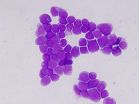Don't clamp umbilical cords straight after birth, urges expert
Personal view: Why do obstetricians and midwives still rush to clamp the cord?
2010-11-11
(Press-News.org) Obstetricians and midwives should wait a few minutes before clamping the umbilical cords of newborn infants so that babies are not harmed by the procedure, argues Dr David Hutchon in an article published on bmj.com today.
Hutchon, a retired consultant obstetrician from the Memorial Hospital in Darlington, says it's time for the UK to follow guidance from the World Health Organisation and the International Federation of Gynaecology and Obstetrics and refrain from early cord clamping.
Despite evidence for the benefit of delayed cord clamping, clinicians in the UK seem reluctant to change their practice, he says, and the UK National Institute for Health and Clinical Excellence (NICE) is not advising them to do so.
One explanation for the apparent resistance of clinicians to follow the evidence is that that cord clamping "has become the accepted norm so much so that delaying clamping is generally considered a new or unproved intervention," he writes.
Yet he argues that "applying a clamp to the cord is clearly an intervention, having the greatest effect when it is done quickly after birth." And he fears that babies might be injured by very early clamping, for example they could experience severe blood loss (hypovolaemia).
He adds that two popular pregnancy information books both imply that delayed cord clamping is the norm and explain the advantage to the baby of delayed clamping.
Hutchon believes that if the need for early cord clamping was removed from NICE's guideline, "there could be an overnight change in practice."
He concludes: "Clamping the functioning umbilical cord at birth is an unproven intervention. Lack of awareness of current evidence, pragmatism, and conflicting guidelines are all preventing change. To prevent further injury to babies we would be better to rush to change."
INFORMATION: END
ELSE PRESS RELEASES FROM THIS DATE:
2010-11-11
AUDIO:
Researchers at Washington University in St. Louis have identified mutations in a single gene that are associated with a poor prognosis for patients with acute myeloid leukemia. The discovery suggests...
Click here for more information.
Decoding the DNA of a woman who died of acute myeloid leukemia (AML) has led researchers at Washington University School of Medicine in St. Louis to a gene that they found to be commonly altered in many patients who died quickly of ...
2010-11-11
Researchers have discovered mutations in a particular gene that affects the treatment prognosis for some patients with acute myeloid leukemia (AML), an aggressive blood cancer that kills 9,000 Americans annually. The scientists report their results in the Nov. 11, 2010, on-line issue of The New England Journal of Medicine.
The Washington University School of Medicine in St. Louis team initially discovered a mutation by completely sequencing the genome of a single AML patient. They then used targeted DNA sequencing on nearly 300 additional AML patient samples to confirm ...
2010-11-11
An Australian research team from the Peter MacCallum Cancer Centre, the University of Melbourne and the University of Queensland has identified a new risk factor for developing breast cancer. This has been published online in the journal Cancer Prevention Research.
The risk factor involves a modification (DNA methylation) to the BRCA1 gene. BRCA1 is known for its involvement in breast and ovarian cancer. Women with mutations in this gene, which inactivates its function, are predisposed to these diseases.
The DNA methylation modification is known as an epimutation and ...
2010-11-11
Variations in atmosphere carbon dioxide around 40 million years ago were tightly coupled to changes in global temperature, according to new findings published in the journal Science. The study was led by scientists at Utrecht University, working with colleagues at the NIOZ Royal Netherlands Institute for Sea Research and the University of Southampton.
"Understanding the relationship between the Earth's climate and atmospheric carbon dioxide in the geological past can provide insight into the extent of future global warming expected to result from carbon dioxide emission ...
2010-11-11
How well a person performs in a coalition is partly hereditary, according to a recent study.
Researchers found that how successfully an individual operates in a group is as much down to having the right genetic make-up as it is to having common cultural ties with fellow group members.
After assessing nearly 1000 pairs of adult twins, researchers at the University of Edinburgh found that strong genetic influences have a major influence on how loyal a person feels to their social group.
It also has a significant impact on how flexibly they can adapt group membership.
Family ...
2010-11-11
Evidence suggesting that the risk of childhood asthma associated with prenatal paracetamol exposure may depend on antioxidant genes in the mother has been found by a team of UK scientists. The results of their study - which strengthens the argument for a causal link between paracetamol exposure in early life and later childhood asthma - are published online (10 November) in the Journal of Allergy and Clinical Immunology.
Led by Seif Shaheen, Professor of Respiratory Epidemiology at Barts and The London School of Medicine and Dentistry, the team examined data from the ...
2010-11-11
New ultra-clean nanowires produced at the Nano-Science Center, University of Copenhagen will have a central role in the development of new high-efficiency solar cells and electronics on a nanometer scale. PhD student Peter Krogstrup, Niels Bohr Institute, in collaboration with a number of well-known researchers and the company SunFlake A/S, is behind the breakthrough. The new findings have recently been published in the prestigious journal Nano Letters.
Nanowires are one-dimensional structures with unique electrical and optical properties – a kind of building blocks, ...
2010-11-11
A new Reference Report published today by the European Commission's Joint Research Centre (JRC) lists 79 reference methods for GMO analysis which have been validated according to international standards. This Compendium, developed jointly by the European Union Reference Laboratory for Genetically Modified Food and Feed (EU-RL GMFF) and the European Network of GMO Laboratories (ENGL), presents the technical state of the art in GMO detection methods. Each method is described in a user-friendly way, facilitating the implementation of GMO legislation by official control bodies.
Presenting ...
2010-11-11
Adults born deaf react more quickly to objects at the edge of their visual field than hearing people, according to groundbreaking new research by the University of Sheffield.
The study, which was funded by the Royal National Institute for Deaf People (RNID), has, for the first time ever, seen scientists test how peripheral vision develops in deaf people from childhood to adulthood.
Dr Charlotte Codina, from the University's Academic Unit of Ophthalmology and Orthoptics, led the research and found that children born deaf are slower to react to objects in their peripheral ...
2010-11-11
New research from North Carolina State University shows that most online news stories about cancer contain language that likely contributes to public uncertainty about the disease – a significant finding, given that at least one-third of Americans seek health information online.
"Previous studies show that more than 100 million Americans seek health information online, and that their findings affect their health decisions," says Dr. Kami Kosenko, an assistant professor of communication at NC State and co-author of a paper describing the study. "But, while people facing ...
LAST 30 PRESS RELEASES:
[Press-News.org] Don't clamp umbilical cords straight after birth, urges expert
Personal view: Why do obstetricians and midwives still rush to clamp the cord?

